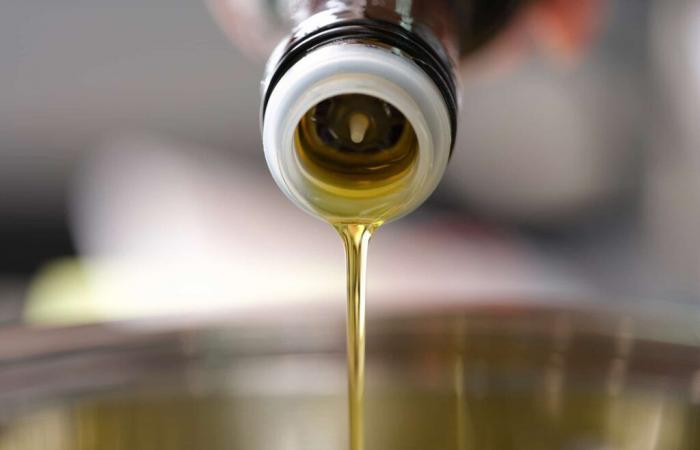Generalized contamination by hydrocarbons
First major observation: half of the analyzed oils contain oil derivativesin particular two types of hydrocarbons:
- MOSH (Mineral Oil Saturated Hydrocarbons): These substances can accumulate in the liver and the lymphatic systemwithout being eliminated.
- Moah (Mineral Oil Aromatic Hydrocarbons): considered as potential carcinogensthey should not be present in food products.
Brand oil Eco+ is a bad student, containing moah in quantity five times higher than the recommended limit by the European Union. Other brands like Carapelli et Monini Also have traces of mosh.
Plasticizers everywhere, Even in organic oils
Another worrying fact: All oils tested, organic or not, contain phthalates or plasticizerssubstances often used in industrial materials and known for their disruptive effect on the endocrine system. These contaminants are likely to migrate pipes, tanks or packaging to oil itself, despite the formal ban on their use in food production equipment.
The Huile Terra Delyssa is one of the most affected by this plasticizing pollution, just like Carapelli. Alone Puget oil Limits the breakage, with a single plasticizer detected at a very low level.
A taste that betrays the label
In addition to chemical analyzes, a sensory panel Assessed the taste quality of oils according to the criteria defined for the “extra virgin” label. Result : Seven oils have notable organoleptic defectsincompatible with this appellation. Moldy taste, rancid or vinegar … These faults reflect either a poor olive qualityeither storage or unsuitable treatment.
The oil table olive to avoid
| Marque | Presence of Moah/Mosh | Detected plasticizers | Sensory defects | To avoid for … |
|---|---|---|---|---|
| Eco+ | Moah (X5 EU standard) | Yes (multiple) | Oui | Contamination multiple |
| Carapelli | MOSH | High rate | Unrecognized | Significant chemical pollution |
| Monini | MOSH | Present | Unrecognized | Risks related to hydrocarbons |
| DELYSSA TERRA | No Moah detected | High rate | Non | Too much plasticizers |
| Carrefour bio | Unrecognized | Present | Oui | Taste defect + plasticizers |
| Auchan bio | Unrecognized | Present | Oui | Non -compliant sensory profile |
| Leader Price | Unrecognized | Present | Oui | Very poor value for money |
How to read this blacklist?
This list does not mean that the oils cited are unfit for immediate consumption. But They do not meet the quality requirements expected from an extra virgin oil and expose, in some cases, to a chronic contaminationespecially in the presence of Moah or endocrine disruptors.
-The most worrying lies in the regularity of these pollutiondespite the existence of a strict regulatory framework. The investigation therefore calls into question industrial practices of certain brandsas well as the efficiency of controls.
Some brands get out of better
The study also mentions some oils having obtained bestboth from a chemical and taste point of view. This is the case with Leos, Costa d’oro and to a lesser extent Pugetwhich limit residues and preserve good organoleptic quality.
Recommendations to consumers
Pending a possible strengthening of regulatory obligations, consumers can:
- Avoid entry -level oilsoften produced at lower costs and with less requirement.
- Favor small producers or PDOs (Protected names of origin), often more rigorous.
- Read independent comparisonslike those of 60 million consumersto enlighten their choice.
More vigilance that never necessary
The investigation of 60 Millions Update a Clear gap between the image of a “healthy” product and industrial reality. Behind the rewarding “extra virgin” label is sometimes hidden a questionable quality, even a worrying chemical contamination. It is now up to consumers, but also to the public authorities, to Press for more transparency and control In a sector where confidence is at stake.
Source: 60 million consumers / May 2025








